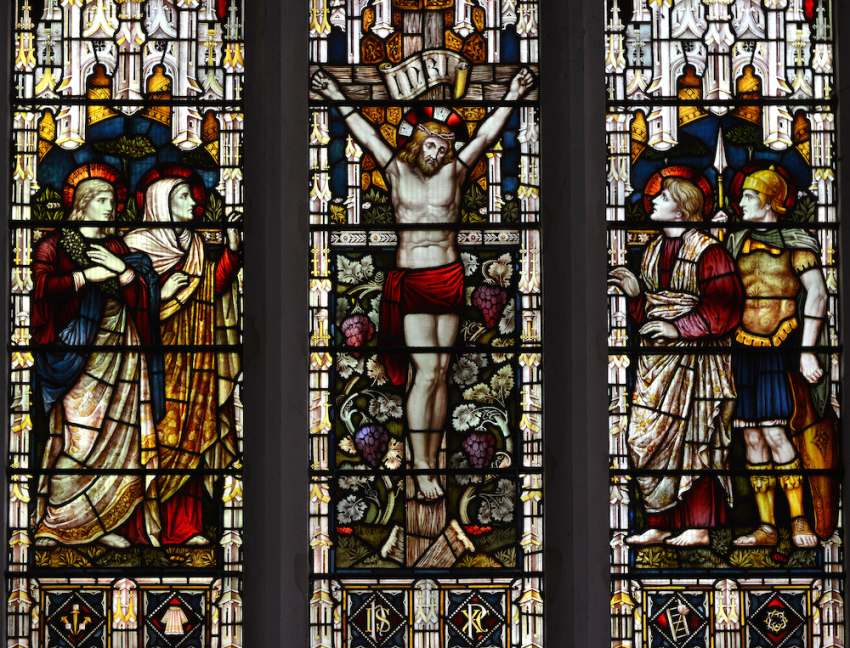Supply-Side Jesus is better than stagflation Jesus

From time to time when I or other writers make the Christian case for an economic system based on voluntary exchange in a marketplace as opposed to economic activity coerced by government entities, we see a snarky response about "Supply-Side Jesus", as if sarcastic quips are the right way to answer the great economic question of our time.
But, since the phrase is out there, let's deal with it. What exactly is wrong with a Supply-Side Jesus? As our nation faces its first serious bout of stagflation since the 1970s, and since it was supply-sideism that ended that last bout of stagflation, is it not reasonable to ask what Jesus might say about this national crisis? Does Jesus care about exploding prices in food and transportation which disadvantage the poor and middle class the most? Or is He so spiritual as to be indifferent to all that? That's the old saw used to attack Christianity, 'don't worry about hunger, there will be pie in the sky by and by.' Perhaps that's why Marx called religion the opiate of the masses, because it allegedly created a religious justification to ignore bad economic conditions and poor standards of living.
Does Jesus really not care about people's hunger or disease? If so, why did He feed and heal them?
Or perhaps the sardonic moniker ‘Supply-Side Jesus’ is not an attack on the idea that Jesus cares about every aspect of our lives, including our standard of living, but rather just an attack on the specific set of answers that supply-sideism offers to improve economic conditions. So, what does that leave us with, Demand-Side Jesus? In economics, supply and demand are the two fundamental issues. Goods are produced (that's supply), then they are consumed (that's demand): that's undeniable. Supply-siders treat the… well… supply side as the more important of the two because they recognize it is not hard to get people to want to spend money and consume things. Human nature being what it is, demand is infinite. We want it all and we want it now. Getting people to want stuff is not the hard part, getting people to grow, build, and make stuff for other people is the challenge.
Is the Jesus of the Gospels, who is the God of the whole Bible, a demand-sider? Does He encourage debt-fueled spending? That's what demand-side economics is: increasing spending to grow the economy. How? First, the economy would be stimulated by debasing currency and thus discouraging thrift. Inflation and artificially low interest rates on savings were to goad savers into becoming current consumers. In addition, taxing wealth and then spending it immediately were also alleged to get the economy moving. One version of this is government spending on large public works projects; another version is free money in the form of stimulus checks placed directly with the people, goading them, once again, into spending the economy into health. Does that sound like Jesus' economics? If so, He sure must have liked Herod a lot more than the Gospels seem to show. The Herodians were the quintessential advocates of using public works projects to keep the economy going. Of course, eventually, the binge stopped (it always does) and the workers were laid off, and not long after that there was a broad rebellion which led to the destruction of Jerusalem. Demand-sideism eventually runs out of other people's money: the bubble bursts and the social safety net is strained, sometimes to the breaking point.
Currently the US is in a period of stagflation. That word was coined in the 1970s, the last time the US was dominated by demand-side economics. A generation has now arisen that has experienced none of that and so must learn the painful lessons again. Punishing people for working (which is just another way of saying "rewarding people not to work"), stimulating the economy through government spending, and paying for it all with vast increases in money supply… we tried all that before and we got stagflation. We're trying it again and we're getting, you guessed it, stagflation.
So then, given the alternatives, by all means I'll take Supply-Side Jesus. I'll take Him over Doesn't Care Whether You Can Afford to Buy Dinner Jesus and over a Demand-Side Jesus who wants debased currency and spending for its own sake. Most of all, I'll take Supply-Side Jesus because Jesus is God incarnate and as such is a maker, a creator of new things, of new "goods" (“God saw that it was good”), and it's no wonder He was incarnated into a family of entrepreneurs in a region of entrepreneurs, and who recruited His followers largely from the ranks of entrepreneurs. If He is the God who supplies all our needs and we are made in His image, then we, too, will be suppliers of the needs of others.
When the church gets that basic truth right again it will guide our nation out of stagflation and into flourishing. Nothing in history has come close to moving as many people out of poverty as the various versions of the supply-side revolution of sound money, low taxes, and encouragement of productive labor. What kind of Jesus would be against that?
Jerry Bowyer is financial economist, president of Bowyer Research, and author of “The Maker Versus the Takers: What Jesus Really Said About Social Justice and Economics.”



























